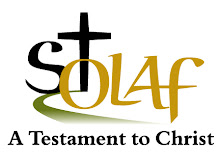Holy Thursday
Remembrance
Reading I: Exodus 12:1–8, 11–14 (the Passover ritual prescribed)
Reading II: 1 Corinthians 11:23–26 (the Lord’s Supper)
Gospel: John 13:1–15 (the washing of the feet)
Key Passage: For as often as you eat this bread and drink the cup, you proclaim the Lord’s death until he comes. (1 Corinthians 11:26)
Adult: How has your understanding of the Eucharist increased since you were a child?
Child: How does the Mass help you remember the events of Jesus’ life and death?
Good Friday
The suffering servant
Reading I: Isaiah 52:13—53:12 (suffering and triumph of the servant of the Lord)
Reading II: Hebrews 4:14–16; 5:7–9 (Jesus, compassionate high priest)
Gospel:John 18:1—19:42 (the passion of Jesus)
Key Passage: Jesus said to Peter, “Put your sword back into its sheath. Am I not to drink the cup that the Father has given me?” (John 18:11)
Adult: What new insight for your life are you receiving through your reflection on the mysteries of Christ’s passion during the Holy Week liturgies?
Child: What do you think of as you hear the story of Jesus’ passion and death?
Holy Saturday
From death to life
Reading I: Genesis 1:1—2:2 (first story of creation)
Reading II: Genesis 22:1–18 (the testing of Abraham)
Reading III: Exodus 14:15—15:1 (crossing of the Red Sea and destruction of the Egyptians)
Reading IV: Isaiah 54:5–14 (the new Zion)
Reading V: Isaiah 55:1–11 (an invitation to grace)
Reading VI: Baruch 3:9–15, 32—4:4 (prayer of wisdom in the Law of Moses)
Reading VII: Ezekiel 36:16–17a, 18–28 (regeneration of the people)
Epistle: Romans 6:3–11 (death to sin, life in God)
Gospel: Mark 16:1–8 (the women at the tomb)
Key Passage: Seek the Lord while he may be found, call upon him while he is near. (Isaiah 55:6)
Adult: How has your celebration of the Eucharist over the years deepened your understanding of life?
Child: What have you learned about being a good Christian from your celebration of Sunday Mass?
Easter Sunday
Hope of salvation
Reading I: Acts 10:34, 37–43 (Peter’s discourse)
Reading II: Colossians 3:1–4 (mystical death and resurrection) Or 1 Corinthians 5:6–8 (unleavened bread of sincerity and truth)
Gospel: John 20:1–9 (Peter and the disciple at the tomb)
Key Passage: When Christ who is your life is revealed, then you also will be revealed with him in glory. (Colossians 3:4)
Adult: Why do you believe that you will live with Christ for all eternity?
Child: Who has helped you believe that you will live with Jesus forever?



